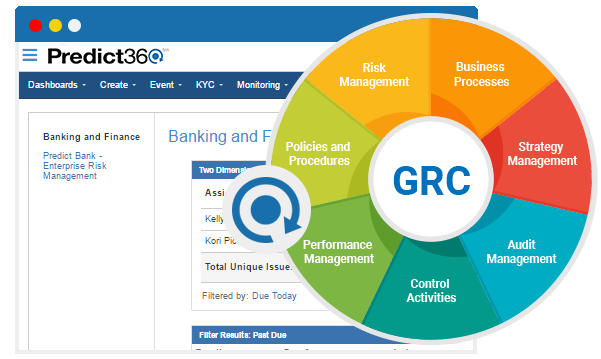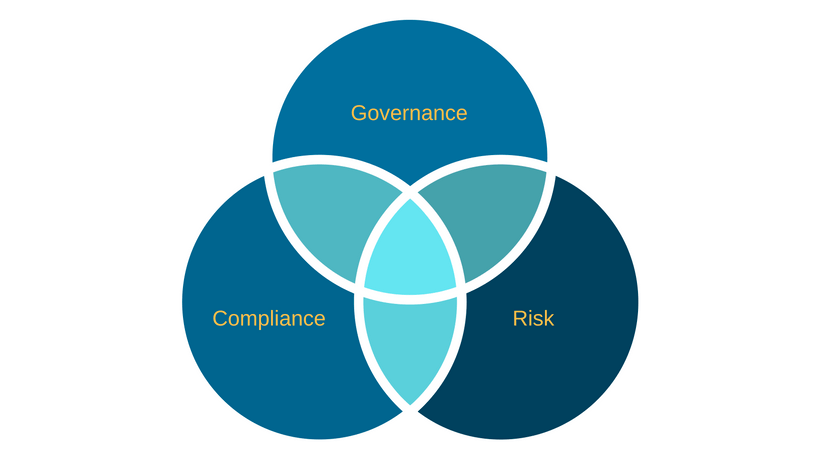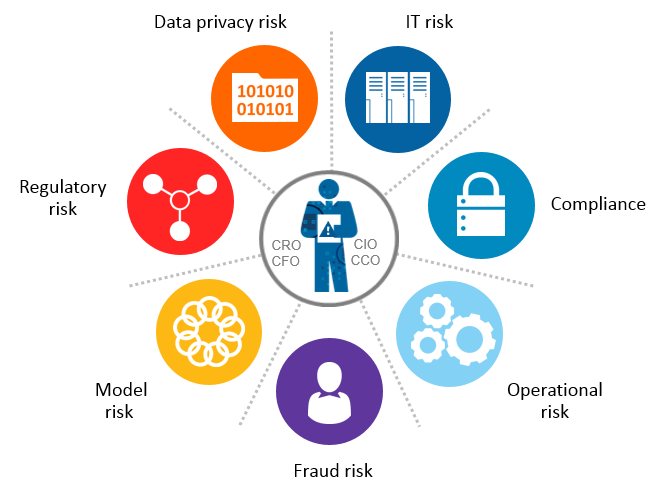GRC is a term which causes a lot of confusion among people. It is easy to see where the confusion stems from. GRC stands for governance, risk, and compliance and these three factors have always been important for organizations. If governance, risk, and compliance have always been important, why has GRC become so important in the previous decade?
The answer to the first question is simple – GRC doesn’t just mean handling governance, risk, and compliance. Managing risk, compliance, and governance has always been a core goal of every organization. GRC means managing them together. The term GRC is less than two decades old but it has quickly become so important due to the abundance of technological solutions being used in organizations.

When businesses started using technology for management, they discovered several new things. One important discovery was how often governance, risk, and compliance intersected. When there is a problem related to governance it can cause trouble for risk and compliance. Too many compliance personnel being absent is a governance issue, but it directly affects compliance. Governance issues also have the same effect. If there is a governance issue, for example the water supply is not working right, it can open the business to risks. Since these three things intersect so much it only made sense to make them work together.
The synchronization in GRC
The reason that governance, risk, and compliance need to be in the same page is that they are based on many of the same factors and their aims are the same as well. No organization can manage compliance properly unless it also managed governance and risk properly. No business can manage risks unless it also manages risk and governance. Similarly, no business can do governance right if it isn’t doing compliance and risk right.

Technology plays a key role in the GRC framework. GRC doesn’t simply mean deciding to have these three factors work in the same direction – the synchronization needs automation. GRC needs technology because it needs compliance, governance, and risk management to ‘’talk’’ to each other. This means that the application that is managing risk, the application that is managing compliance, and the application managing governance need to be able to communicate with each other. This communication is what fuels the benefits which GRC provides.
The benefits of GRC
GRC is becoming so popular because its benefits are undeniable. Businesses that use GRC tools immediately see an increase in their productivity and efficiency when it comes to risk, governance, and compliance. One of the biggest benefits is that management finally gets visibility into GRC, something which they have always wanted but always lacked. When governance, risk, and compliance are being managed manually there is way to see a live view of the status of all issues. If management wants to know anything they need to get in touch with their employees and ask them to make a report about the topic.
Things work differently in GRC software. There is no need to ask anyone to make a report about a topic related to governance, risk, or compliance. All that the management needs to do is open the GRC application they use and they will be able to see the risk, compliance, and governance status of the whole organization.

Reporting also becomes much easier when GRC solutions have been implemented. There is no need to spend days creating detailed reports if an issue occurs. The reports can instead be automatically generated by the GRC solution that has been implemented. Since all the data and information that will be needed in the report is already within the system this only takes a few minutes.
Management is also more aware of all ongoing issues. They can see all the open risk, governance, and compliance related issues in the organization. They can’t just see the issues, they can also track the progress being made on the issues. They can see which issues are close to being resolved and which issues need their direct input.
All these benefits make GRC implementations an obvious choice for any organization that wants to reduce risks, improve compliance, and enhance governance.
